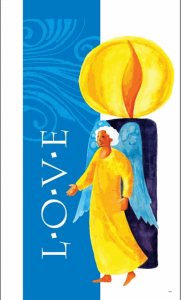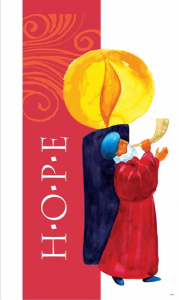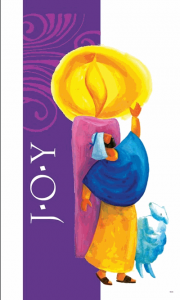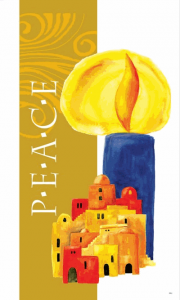[ezcol_1third] [/ezcol_1third] [ezcol_2third_end]
[/ezcol_1third] [ezcol_2third_end]
Christ does not have hands, only our hands
in order to fulfill his mission today.
He does not have feet, only our feet
in order to guide people on his path. Continue Reading
[ezcol_1third] [/ezcol_1third] [ezcol_2third_end]
[/ezcol_1third] [ezcol_2third_end]
Christ does not have hands, only our hands
in order to fulfill his mission today.
He does not have feet, only our feet
in order to guide people on his path. Continue Reading
[ezcol_1half]Texto en español[/ezcol_1half] [ezcol_1half_end]Text auf Deutsch[/ezcol_1half_end]

Christmas is around the corner, the feast of love per se – or? All you need is love – a well-known song of the Beatles from July 1967 was written by John Lennon. Those who do not experience love, or who have been deprived of love for a long time, become mentally crippled and are physically harmed. We humans need, yes we live by and for, love.
„Everyone who loves is begotten by God and knows God. Whoever is without love does not know God, for God is love.“ – the first letter of John tells us. Love/loving is – maybe now, first of all, a state that lets us immerse ourselves in a certain bliss. Love is a state of security, confidence, that gives security and protection. And it strikes sometimes very suddenly and with full force.
There it is all at once, that feeling of enjoyment, of affection, of “butterflies in the stomach”. – But that’s not the real love most of the time, because real love takes time and examination and it needs to grow. Often we have a very romantic idea of love. This is not surprising, because in the lyrics of songwriters and writers, in films, novels and plays love is almost always transfigured and presented as the highest of all feelings. Everything just seems to be about happiness and wellbeing, the “butterflies in the stomach” and the tender affection. The world is seen through pink glasses; everything is vain, bliss and sunshine. “And they all lived happily ever after,” it says at the end of the fairy tales. Continue Reading
| Texto en español | Text auf Deutsch |
 Hope – is a confident inner alignment, coupled with a positive expectation. However, there is no real certainty as to whether or not this desired outcome will actually occur. Hope is the comprehensive emotional and often action-guiding orientation of the people on the future.
Hope – is a confident inner alignment, coupled with a positive expectation. However, there is no real certainty as to whether or not this desired outcome will actually occur. Hope is the comprehensive emotional and often action-guiding orientation of the people on the future.
Thinking a little bit about these lines above, the idea arises that hope always occurs when there is dissatisfaction or uncertainty. Given the near-obvious threats to our actually wonderful Earth, this probably affects the majority of people. Whether they are affected by the onset of climate change because they are losing their land and home or they are worried about losing their jobs – both are the basis of their uncertainty. Whether the children can get no, or only a poor, education for their future, or their own country does no longer offer a future because of mismanagement and corruption or by warlike and permanent criminal acts. Whether the land was destroyed by natural disasters and was rebuilt only temporarily or not at all, or whether the human himself has dehydrated lakes with his actions, rivers became diverted, the land became destroyed and devastated by technics and pollution and was made useless for generations. We could easily enumerate many more reasons. However, you see, there are enough reasons for people to leave their homelands and venture on an uncertain and dangerous journey into the future. “Escape” and “migration” are present in many parts of the world of today, with all their by-products and effects. Continue Reading
[ezcol_1quarter][/ezcol_1quarter] [ezcol_1quarter]Texto en español[/ezcol_1quarter] [ezcol_1quarter]Text auf Deutsch[/ezcol_1quarter] [ezcol_1quarter_end][/ezcol_1quarter_end]
 “Rejoice” – in Latin “Gaudete” – is the motto of the third Sunday of Advent. “Rejoice in the Lord always! I shall say it again: rejoice!” We can read this in the letter to the Philippians. On the Advent wreath, the pink candle is lit today.
“Rejoice” – in Latin “Gaudete” – is the motto of the third Sunday of Advent. “Rejoice in the Lord always! I shall say it again: rejoice!” We can read this in the letter to the Philippians. On the Advent wreath, the pink candle is lit today.
“I feel like a million dollars and like to embrace the whole world!” – “I am bursting with joy!” Maybe, or hopefully, everyone knows the feeling of infinite joy that some event brings with it. It is a feeling that makes one hover above the ground, that produces “butterflies in the stomach”.
The Holy Scripture often speaks of joy. We can find more than 200 places in the Old Testament and over 100 in the New Testament. The Holy Scripture presents the joy of God as a source of power (“…, for rejoicing in the LORD must be your strength! “, Neh 8,10b), which allows one to maintain one’s inner balance even in unpleasant situations. Joy is the fruit of the Holy Spirit. Service to a neighbor may also give joy to the servant, for joy can be incredibly contagious. As an Asian saying goes, “Thousands of candles can be lit by the flame of one candle without their light getting weaker and joy does not decrease if it is shared.“ Continue Reading
| Texto en español | Text auf Deutsch |
 In the first days of November of this year in many places in the world, people thought about the end of the first world war 100 years ago. „Never war again“ was one of the most cited appeals because people had gone through a war with unimaginable horror. Did they learn anything from that? Unfortunately not, because as much as the war and the violence was abhorred at that time, the actual causes have received very little attention. Immediately thereafter, demands for reparations, territorial claims, etc. were on the table, which only deepened the discord, hatred and injustice.
In the first days of November of this year in many places in the world, people thought about the end of the first world war 100 years ago. „Never war again“ was one of the most cited appeals because people had gone through a war with unimaginable horror. Did they learn anything from that? Unfortunately not, because as much as the war and the violence was abhorred at that time, the actual causes have received very little attention. Immediately thereafter, demands for reparations, territorial claims, etc. were on the table, which only deepened the discord, hatred and injustice.
In connection to this, you could consider the verse from Mat 5,39: “When someone strikes you on your right cheek, turn the other one to him as well.” A wisdom, which irritates us immediately. Why do I have to suffer the hurt twice and become humiliated to get peace? – Not a few will ask what is that good for? It is no different than a wisdom that the ancient Greeks had already recognized, namely that of amnesty. There it was prescribed by law and executed in all its consequence. What does that mean?
What has happened cannot be undone, and we all know this from often painful experiences. The call and desire for revenge, retribution and (supposed) justice is strong. But how can one succeed in escaping this spiral of mistreatment, murder, manslaughter and ongoing mutual violence? This is a dilemma which is tormenting human history for millennia.
In ancient Greece, it was recognized that a new, untouched page must become opened in the Book of Life. However, this can only happen if all the old “insulting and hurting” does not continue to burden. Therefore “general forgetting” – the amnesty, was prescribed by law. The violation or disregard of this law was made under penalty of death or synonymous exclusion from the society (outlaw = was left to fend for itself), the highest of all penalties. Thus, amnesty can be seen as a kind of prescriptive forgetting. This requires tremendous courage from people in terms of size and tolerance. This is often not easy. But only through this pain a new beginning succeeds, and a new, common life is possible.
The Christian faith understands itself as a religion of peace. But what a contradiction do we see and read in the daily news?
Today we celebrate the first Sunday of Advent. This should recall on the entry of Jesus into Jerusalem. (Luke 21,25–28.34–36). This report on this triumphal entry is a contrast program. But these contrasts show us examples for use in one’s own life. It is the story of a king who comes as a low servant on a donkey, not in royal robes, but in clothes of the poor and the humble. Jesus Christ does not come as an earthly king to conquer by force, but with love, grace, mercy and his own sacrifice for his people. His kingdom on earth has no armies, riches, or splendor, but humility and servanthood. He does not conquer nations or markets; he does not want to dominate anyone. No, he invites and speaks to the hearts of the people, His message is that of peace.
Every peace always starts on a small scale, in ourselves, no matter what the external circumstances may be. Every peace begins or ends where the boundaries between me and my neighbor are crossed. If there is disunity within ourselves, it usually reflects outward in our words and actions. Sooner or later, this inner “war” leads to external strife. That’s why it’s so important to be in peace with yourself, “to functioning smoothly”. I cannot ask for something from others that I am not prepared to give from myself.
The essential step to inner peace is forgiveness. Only by forgiving others and oneself can the negative emotions be overcome. This does not say the acts or incidents were alright. Sometimes only the prescribed forgetting helps here. Then it becomes clear, what Jesus had meant with, “When someone strikes you on your right cheek, turn the other one to him as well.” This can’t work without pain. It’s a tough struggle, but it works if both sides have a genuine interest in it. Peace begins in small steps and gestures. Great empathy and creativity are needed to resolve conflicts, as well as other, non-violent methods. It is a long learning process and requires emotional maturity. Let’s set off together on the road to a common peace on this first Sunday of Advent …
In this sense:
Shalom aleikhem – as-salãmu ʿalaykum –
peace be upon you –
La paz sea contigo –
Pokój z toba –
La paix soit avec vous –
a paz esteja contigo –
Friede sei mit Dir …!
 Let me start with a metaphor. If we look at the Salvatorian Family from the point of view of today so we can discover a more or less young tree. You will say now that is clear because this depends on your profession. And you are right because my profession and my Salvatorian vocation have developed together over a long time side by side. So I want to invite you to follow me into this picture so I can give you an understanding of and maybe a feeling for this tree:
Let me start with a metaphor. If we look at the Salvatorian Family from the point of view of today so we can discover a more or less young tree. You will say now that is clear because this depends on your profession. And you are right because my profession and my Salvatorian vocation have developed together over a long time side by side. So I want to invite you to follow me into this picture so I can give you an understanding of and maybe a feeling for this tree:
I think most of us will agree that God has planned something great with John Baptist Jordan. It is not for nothing that the Hl. Spirit met him as a child, put a special seed in his hand and set an idea of this tree into his mind. For a long period of time Baptist did not really know what to do with these gifts and how to apply them. But the soil was already prepared; the conditions from outside and the climate were ready. And yes – you are right; John Baptist has never seen or recognized his vision in the shape of a tree. But have an open mind, please; I think this comparison could be of interest. Continue Reading
